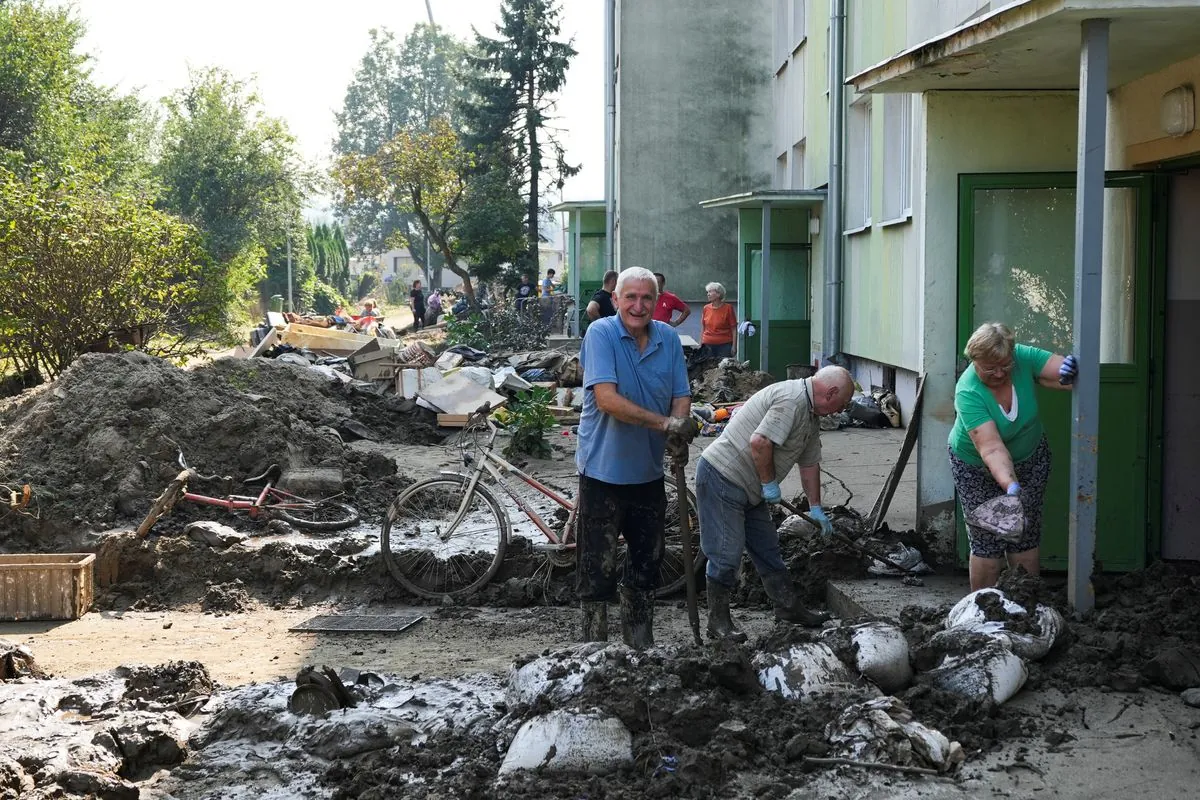In Glucholazy, a small town in southwestern Poland, residents are grappling with the aftermath of severe flooding that has devastated homes and livelihoods. The disaster, part of wider flooding across central Europe, has been described as the worst in at least two decades, affecting numerous towns in the region.
Maria Ciesla, a local resident, shared her heartbreak over the loss of cherished possessions. "I have grandchildren... toys that can't be saved," she said, her voice filled with emotion. Despite the devastation, Ciesla expressed gratitude for the community's support, noting the provision of meals and water to those affected.
The town of Glucholazy, with a population of about 14,000, is situated in the Eastern Sudetes mountain range and has a rich history dating back to the 13th century. The Biała Głuchołaska river, which flows through the town, likely contributed to the flooding.
While community spirit has been strong, some residents have voiced criticism of the local authorities' response. Bronislaw Lesnik, a 75-year-old pensioner, expressed frustration with the lack of assistance from the city authorities and difficulties in getting help from his insurance provider.
The Polish government has mobilized significant resources to address the crisis. The defense ministry reported the deployment of over 14,000 soldiers to flood-affected regions, along with thousands of police officers and equipment. Even inmates have been involved in fortifying floodwalls, as shown in images released by the prison service.
However, questions have been raised about the preparedness for this disaster. Elzbieta Prochop, another resident, claimed that Czech authorities had issued warnings earlier, but no visible preparations were made in Glucholazy.
Glucholazy, known for its mineral springs and annual "Glucholazy Guitar Town" music festival, now faces the challenge of rebuilding. The town's economy, primarily based on tourism and small industry, may take time to recover from this setback.
As the community works together to overcome this disaster, the flooding serves as a stark reminder of the importance of effective early warning systems and disaster preparedness, especially in regions prone to such natural calamities.
"I see there is hope. They serve dinners here... they provide water."
This event highlights the need for improved cross-border communication and coordinated disaster response, particularly given Glucholazy's proximity to the Czech border and its sister city relationship with Zlaté Hory in the Czech Republic.
As cleanup efforts continue, the resilience of Glucholazy's residents is being put to the test. The town, which has weathered historical changes including being part of Germany until 1945, now faces the challenge of rebuilding and strengthening its defenses against future flooding events.
